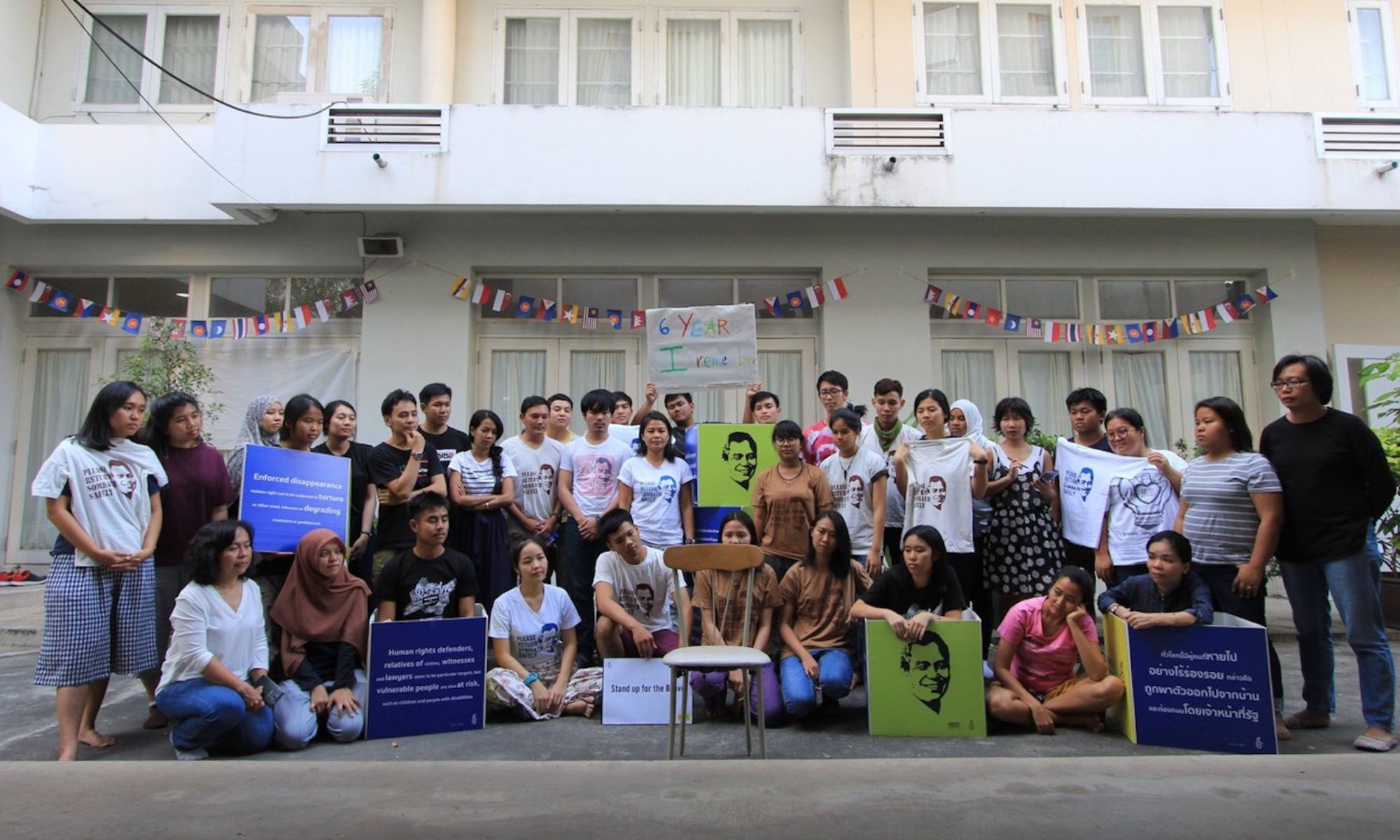Jakarta Post: 03 September 2015
As ASEAN moves toward a single economic community, civil society groups have urged regional governments not to tolerate human rights violations and to address past abuses, including cases of forced disappearance.
In its efforts to become a democratic region, ASEAN still faces unresolved cases of involuntary disappearances. According to the Asian Federation Against Involuntary Disappearances (AFAD), some 800 cases of forced disappearances in ASEAN member countries have been reported to the UN.
The Philippines has the most cases filed at 625, followed by Indonesia with 163, Thailand with 71, Laos and Myanmar with two each and Cambodia with one case.
“The figures represent the tip of the iceberg vis-a-vis the actual number of cases, since families and witnesses are fearful of reprisals from state authorities,” AFAD said in a recent statement.
AFAD , which is based in Quezon City, the Philippines, functions as an umbrella organization in the region to strengthen the work of human rights groups. These groups include NGOs working on human rights in general and organizations of families of the disappeared.
AFAD has urged governments in the region to ratify the International Convention for the Protection of All Persons from Forced Disappearance as an essential step to ending forced disappearances.
Indonesia, Thailand and Laos have signed the convention, while only Cambodia has ratified it.
The groups’ call was particularly aimed at President Joko “Jokowi” Widodo’s administration.
AFAD sees Indonesia a priority country for its lobbying and campaigning work this year, concluding that if Indonesia ratifies the convention, it will send a strong message and set a good example to other ASEAN member states to prevent future cases and resolve prior ones. Forced disappearances are continuing offences, ongoing as long as the fate and whereabouts of the victim remains unknown.
“We are in the same situation, we share the same pain, the same hope, the same struggle and hopefully the same victory,” said AFAD secretary-general Mary Aileen Diez-Bacalso on a recent visit to Jakarta in support of AFAD’s two Indonesian member organizations, the Commission for the Disappeared and Victims of Violence (Kontras) and the Indonesian Association of Families of the Disappeared (IKOHI). These organizations are lobbying for the ratification of the convention.
“For many ASEAN countries, closer cooperation would be beneficial in terms of a faster resolution of human rights cases, to show that we are a region, a community that does respect human rights,” emphasized Shui-Meng Ng, a Laotian who took part in AFAD’s trip to Jakarta.
Ng was eager to tell the tragic story of the case of her husband Sombath Somphone, who disappeared on Dec. 15, 2012, and has yet to reappear. The Laotian government has said publicly that it is still investigating, but Ng’s requests for concrete information have gone unanswered. She is therefore appealing to the Laotian government.
“Find my husband and return him safely to me. Tell me what has happened to him. That is my basic demand!” she said in a statement.
Ng also expressed hope that Indonesia would set a good example by resolving its own cases.
Bacalsom, meanwhile, urged the current Indonesian government not to lose momentum in addressing past human right abuses, including cases from 1965 to 1998. “If the cases aren’t solved now, when will they be?” she asked.
